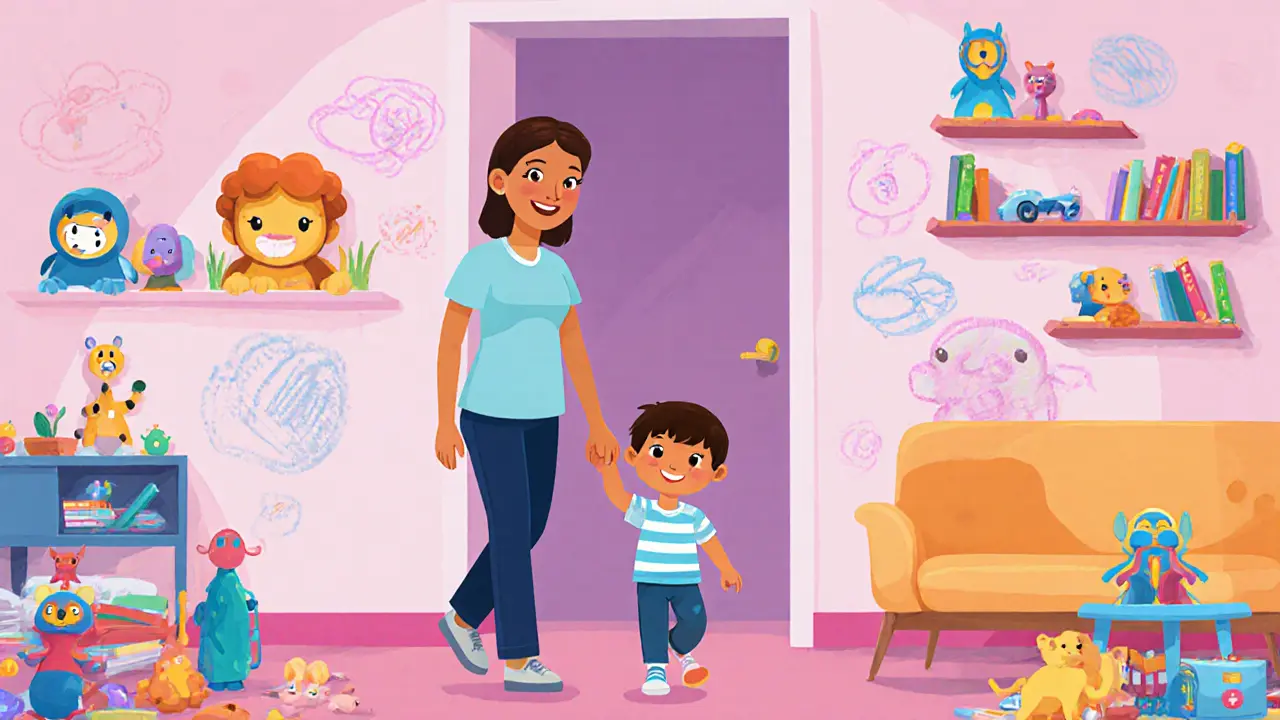Kak mluvit s dítětem o psychologovi
When talking to a child about seeing a psychologist, you're not introducing a scary doctor visit—you're offering a psycholog pro děti, odborník, který pomáhá dětem pochopit své city a překonávat obtíže, aniž by se cítily vyšetřované nebo chybné. Also known as dětský psychoterapeut, it works with emotions, behaviors, and thoughts in ways that feel safe and natural for kids. This isn't about fixing something broken. It's about giving your child a quiet space to be heard, especially when words at home run out.
Many parents worry that saying "pojďme k psychologovi" makes the child feel like there's something wrong with them. But what if you framed it like going to a coach for soccer? You don't say, "You're bad at soccer, we need help." You say, "Let's find someone who can help you play even better." The same applies here. A dětská psychoterapie, specifický přístup, který využívá hru, kreslení a příběhy místo jen hovoru, aby děti mohly vyjádřit to, co nemohou říct slovy. Also known as terapie přes hru, it helps children process things like school stress, family changes, or feelings they can't name yet. You don't need to have all the answers. You just need to be calm, honest, and present.
What do you actually say? Start simple: "Všiml jsem si, že se někdy cítíš smutný/rozčílený/odtud. A víš co? Je úplně normální, když se tak cítíš. A je tu někdo, kdo se na to umí podívat s tebou, bez toho, aby to bylo špatně. Chceš se s tím podělit?" Don't force it. Don't promise quick fixes. And never say, "Myslím, že bys měl jít k psychologovi," as if it's a punishment. Instead, say, "Můžeme to zkusit spolu. Jako výlet, kde se naučíš nové věci o svých city."
Children pick up on your energy. If you're nervous, they'll be nervous. If you're calm and matter-of-fact, they'll follow. The rodinná podpora, klíčový prvek, který zvyšuje úspěšnost terapie, protože dítě potřebuje vědět, že jeho rodiče ho stále podporují, i když jde k odborníkovi. Also known as podpora v terapii, it means showing up, listening without judging, and not expecting instant changes. It's okay if they cry. It's okay if they say no. It's okay if they ask a hundred questions. Just keep answering gently. You're not trying to convince them. You're inviting them.
The posts below give you real examples: how to explain therapy to a 5-year-old versus a 12-year-old, what to do when your child refuses to go, how to handle questions like "Why do I need this?" and what happens in the first session. You'll find tips from parents who’ve been there, and insights from therapists who work with kids every day. No jargon. No pressure. Just clear, practical steps you can use tomorrow.

Jak vysvětlit dítěti, že jde na psychologa: Praktický průvodce pro rodiče
lis 20 2025 / Psychologie a duševní zdravíJak vysvětlit dítěti, že jde na psychologa, aniž by se bojelo? Praktické rady pro rodiče: jak mluvit o terapii, co říct, co vynechat a jak připravit dítě na první návštěvu bez strachu.
ZOBRAZIT VÍCE